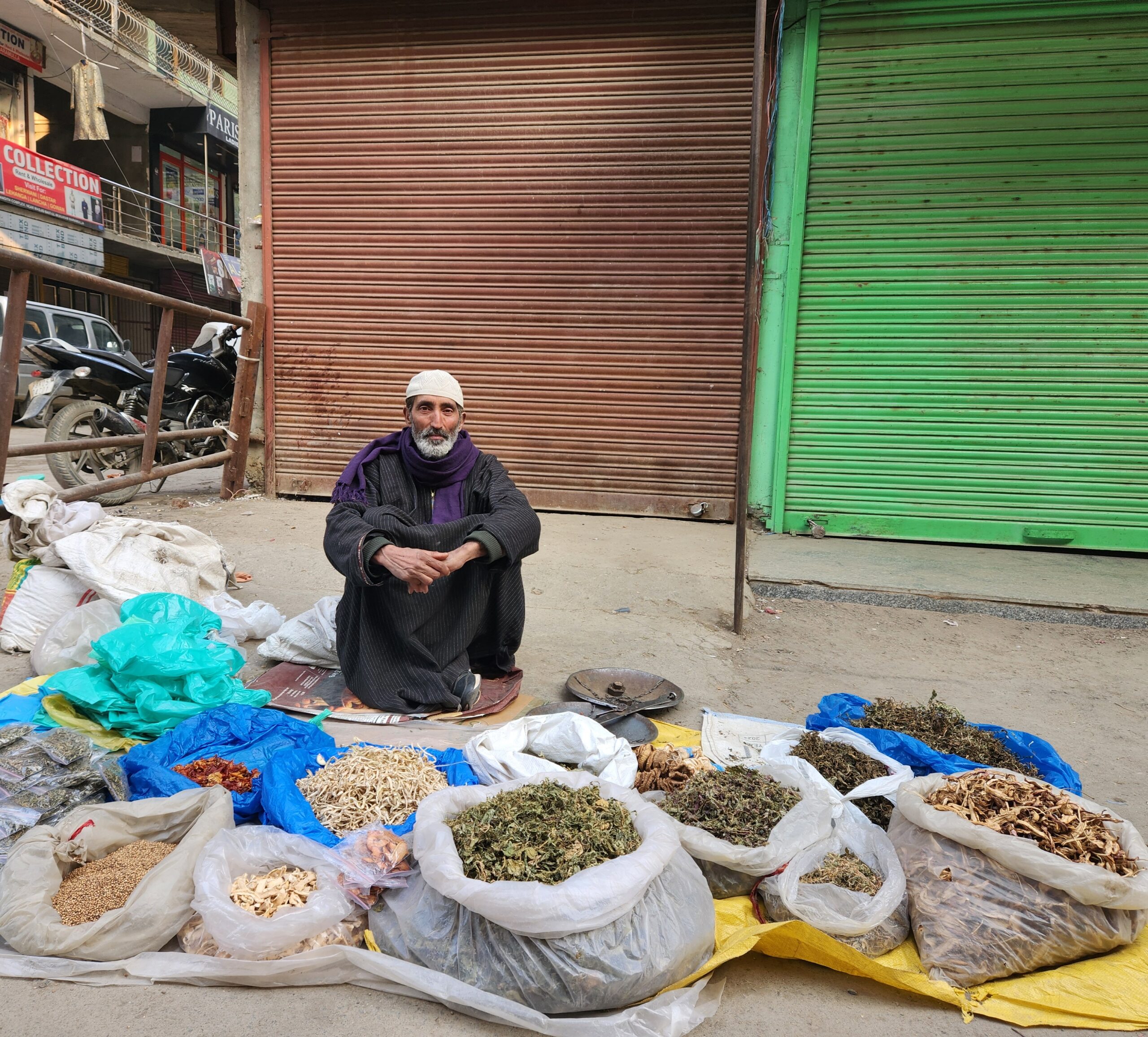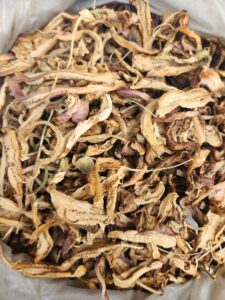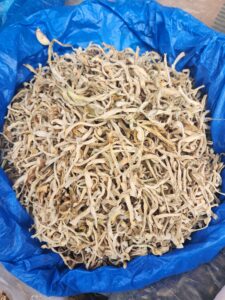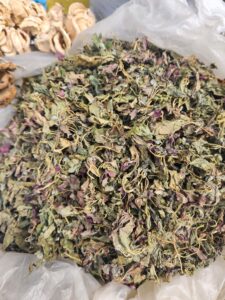Winter sends demand for sundried vegetables rising in Kashmir
Amidst the ongoing chillai kalan, the harshest part of winter that brings on extremely low and sub-zero temperatures that lasts for 40 days in Kashmir valley in the northern territory of Jammu and Kashmir, urban as well as rural kitchens have begun to turn to dishes like gogje paneer, alhache chicken, and hoggad chutney.
While the dishes are distinct, they all have one common underlying thread, that they are all made using sundried vegetables.
Over the years, sundried vegetables has evolved into a cherished local cuisine, with dried tomatoes, known as ruwangan hache, bottle gourd (Al-Hache), Pears (Tang Hache), Apple slices (Tchoont Hache), Lotus stems (Nader Hache), Fish (Hokh Gaad or Hoggard), Brinjal (Wangan Hache), Turnip slices (Gogji Hatche), Spinach (Hukh Palak), and forest herbs (Jungle Handh) being among the various varieties.
As winter sets in, the demand for traditional Hokh Syun, or sundried vegetables, sees a significant rush. Hokh, means dry, and “Syun,” referring to vegetables,
“I’ve witnessed a remarkable surge in the demand for sun-dried vegetables during the onset of the Chilla Kalan that commences on December 21 and extends for 40 days. As temperatures drop, the locals eagerly make their way to our market stalls, seeking the comforting flavours of homemade goodness” Ashraf Hameed a local vendor tells Media India Group.
Earlier, storage of dried food used to be a necessity in Kashmiri homes, as due to harsh winters, the availability of fresh food was rare. However, today, even when fresh vegetables are available in the market, people still prefer to eat dried vegetables.
“We are committed to preserving our cherished tradition. In Kashmir, if you don’t eat dried vegetables during the winter, you’re truly missing out on something special. My son Junaid Bashir, who works in Saudi Arabia, takes different varieties of Hokh syun with him whenever he comes home,” Bashir Ahmad a local resident of Baramulla tells Media India Group .
“These carefully preserved vegetables, nurtured in our homeland, travel with him across borders, ensuring that no matter where life takes him, a piece of Kashmir is always by his side,” Ahmad adds.
Khursheed Ahmad Khan Hukh syun dealer, from North Kashmir has been in this business for the last 23 years, “Every winter, we send hundreds of kilograms of dried vegetables to many parts of the country, as demanded by many people living there. Thousands of Indian and foreign tourists who visit the Valley buy these dried vegetables to have a unique food experience. It’s heartening to see how outsiders are not only enjoying the distinctive taste but have also come to understand the health benefits of dried vegetables,” Khan tells Media India Group.
“I take pride in being a part of this culinary tradition that transcends geographical boundaries. The demand for our Hokh Syun extends far beyond the Valley. What makes this experience truly special is witnessing the joy on the faces of tourists as they take a piece of Kashmir back with them in the form of our dried vegetables,” he adds.
“It’s not just about selling a product; it’s about sharing a piece of our culture and heritage with the world. In every pack of dried vegetables that leaves my shop, there’s not just a culinary delight; there’s a piece of Kashmir’s history and warmth. It’s a connection that goes beyond the transaction. It is about sharing a slice of our lives with those who appreciate the richness of our traditions,” Khan adds.
“These dried delicacies, are rich in fibre, not only provide a natural remedy for constipation but also offer various medicinal values. Scientific evidence now supports the positive impact of these sun-dried vegetables on relieving constipation” Saqib Khursheed a nutritionist from Baramulla tells Media India Group.
“Moreover, the cultural wisdom surrounding dried vegetables extends beyond their fibre content. In Kashmir, people traditionally consider dried bottle gourds (alhech) effective for managing cough and the common cold. Hooch hand (dried dandelion) is esteemed for its role in increasing haemoglobin levels in new mothers, while bump (dried water lily rhizome) is believed to aid in arthritis and contribute to much-needed heat generation in the body during harsh winter months” he adds
“Sun-dried vegetables, are free from any preservatives, and once or twice a week appears to be a wholesome choice for maintaining health. Importantly, as of now, no scientific evidence has surfaced indicating any harm associated with the consumption of sun-dried vegetables,” Khursheed adds.














